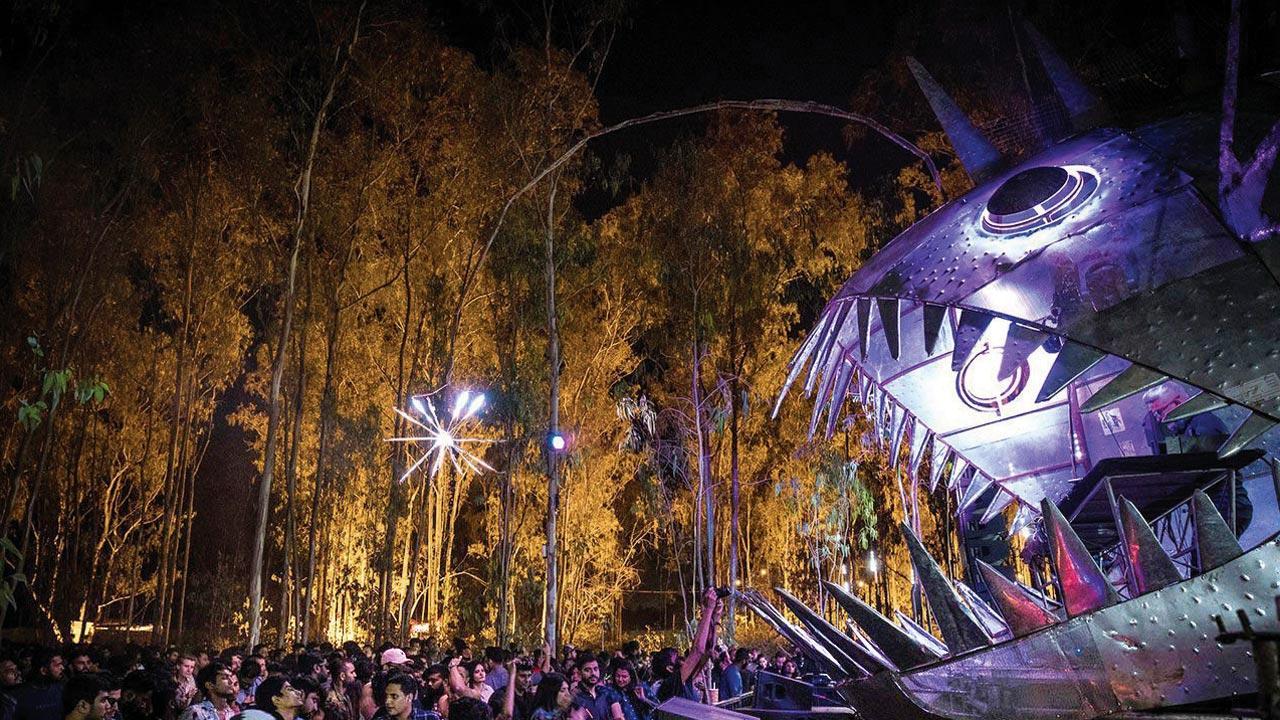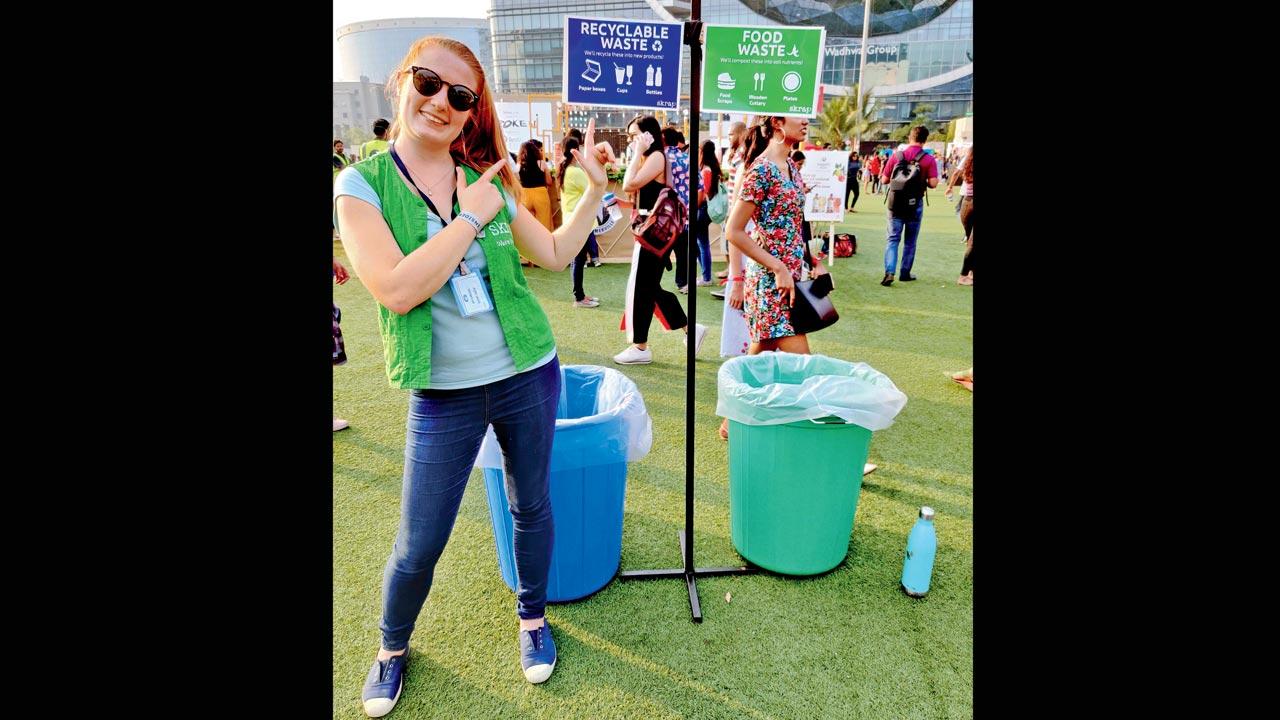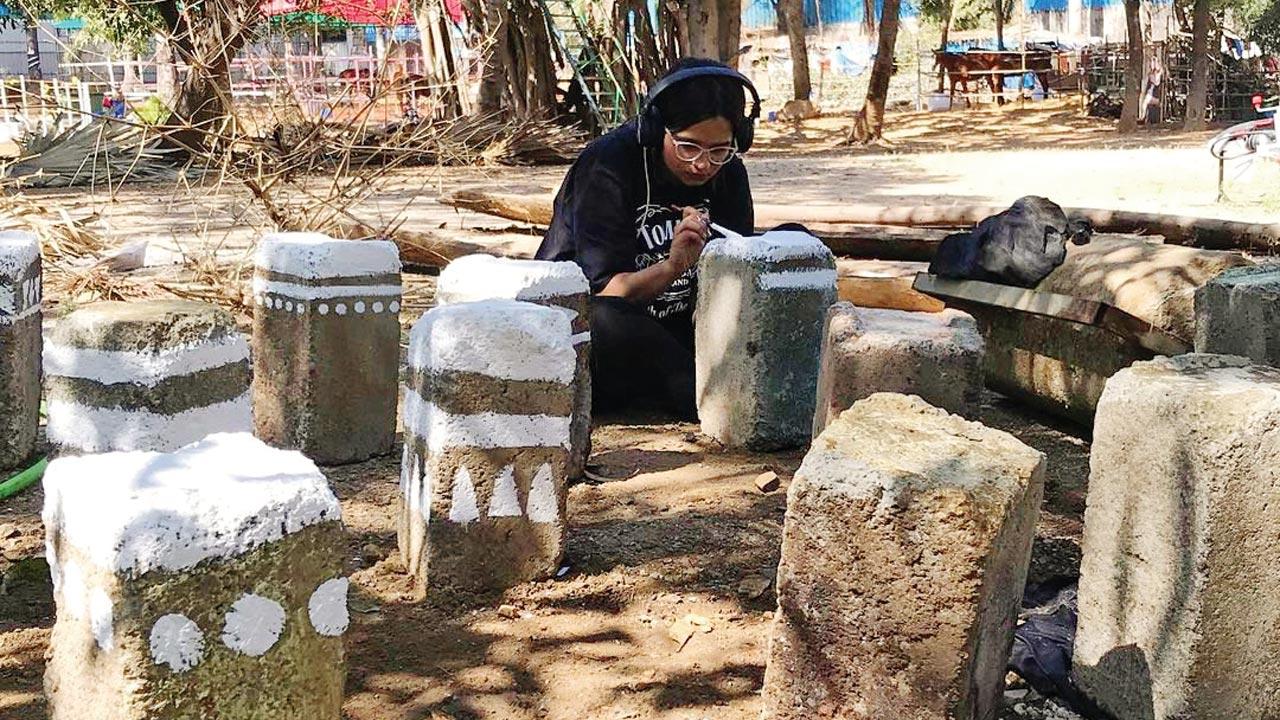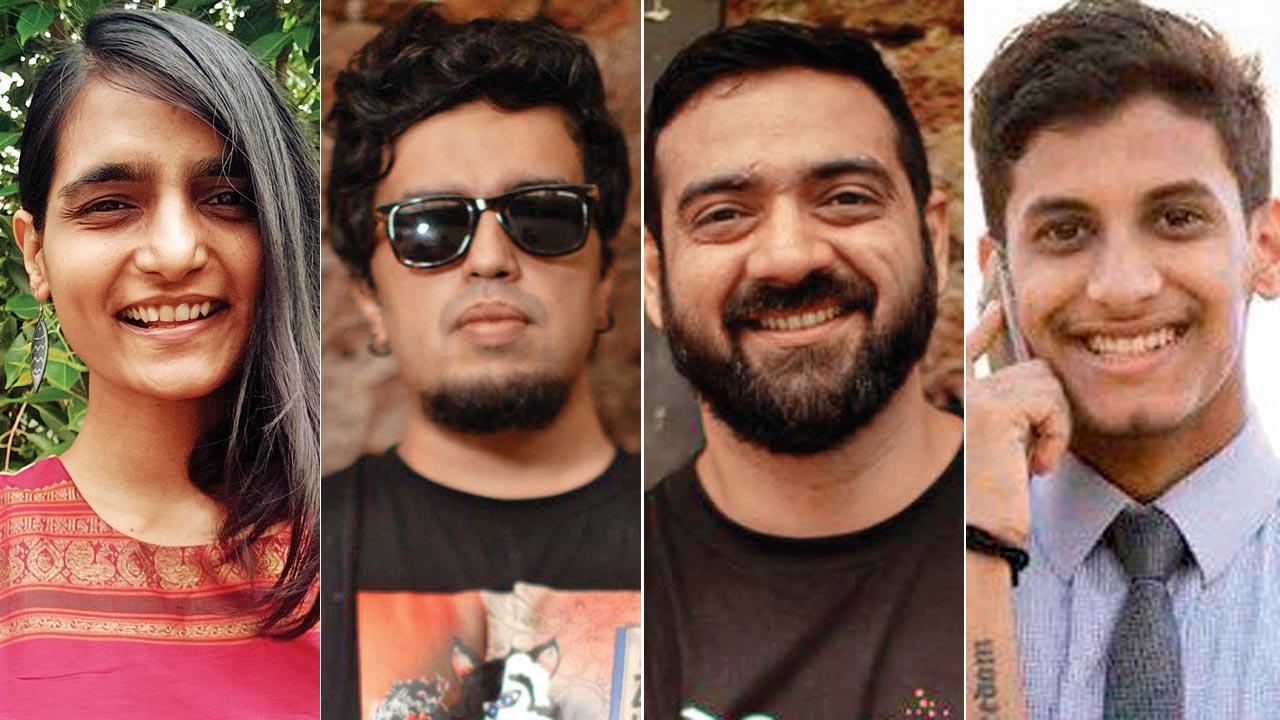Setting the bar super high, Coldplay is having an eco-friendly, sustainable 2022 world tour. Does that mean homegrown music festivals will follow through?

Echoes of Earth’s design-first approach is why most of their stages have different visual animal structures
The music industry hasn’t been kind to the environment. A study in 2018 highlighted how music festivals used seven million tonnes of fuel, generated 25,800 tonnes of waste and had a carbon footprint of 24,261 tonnes in the UK alone. So, when the biggest band in the world, Coldplay, announced that they will embark on a sustainable world tour in 2022—which will have a solar-powered stage, kinetic energy power, and pedal power among other things—it came as a wake-up call for many. But are festivals in India ready to step on the road to sustainability, too?
ADVERTISEMENT
“The time has definitely come for this [sustainability] idea and there is a lot of increased awareness about it,” says Divya Ravichandran, founder of Skrap, a social enterprise that works with events to ensure zero waste and attempts to make them as sustainable as possible. However, founders of India’s largest crowdfunded, DIY festival, Control ALT Delete (CAD), Nikhil Udupa and Himanshu Vaswani, believe that India hasn’t reached a stage where it can solar power an entire festival. “Neither is it possible to set up that kind of arrangement for one or two days. It is not very economically feasible to be environment conscious and sustainable.” However, that being said, even at CAD, they are trying to explore various avenues. All the decor at the festival is DIY and made from reusable, recyclable objects and material. They mentioned how printing hoardings and signages on flex cards is harmful because that material is not recyclable. “We use things made from produce found on land, such as discarded wooden planks, old paint cans or coconut husk as ashtrays. We even use barks of trees as our signages,” says Vaswani.
 Skrap’s ‘trash-talkers’ (volunteers) are present at every point to help and guide the crowd
Skrap’s ‘trash-talkers’ (volunteers) are present at every point to help and guide the crowd
Most music festivals are also opting for recyclable cups. Cupable is one such brand that even the folks at CAD hire. This company provides reusable and/or bio-degradable cups at a nominal charge. As an incentive, the event organisers either provide a discount on every drink in those cups or have a refund system at the end of the event, when the cup is returned. However, despite all these incentives, the crowd doesn’t always return these cups and instead toss them away. To this, Ravichandran adds, “The logistics should be taken care of by the organisation. It [the process] has to be hassle free.” She recalled how Skrap had piloted a similar project around four years ago for NH7 Weekender, one of Indian’s largest annual music festivals. They had noticed then that the number of cups being reused was about 60-70 per cent.
Echoes of Earth, India’s greenest music festival, which is 80 per cent sustainable, takes it up a notch with various campaigns and initiatives. “We believe in a design-first carbon neutral approach and we are working towards complete carbon neutrality,” says Saswat Barman, the festival head. This approach is why most of their stage sets have different visual animal structures. They collaborate with artists across Bengaluru to work on these designs and use resources available by collecting scrap metal and reusing it. “We mobilise an army of people two months prior, who go to different scrapyards and collect the scrap,” says Barman. They are also known for conducting workshops and sessions around environment and animals, running tree plantation campaigns on occasions like World Soil Day and planting trees for every ticket. They planted 10,000 trees in 2018.
 “We use things made from produce found on land such as discarded wooden planks, old paint cans or coconut husk as ashtrays. We even use barks of trees as our signages,” says Vaswani
“We use things made from produce found on land such as discarded wooden planks, old paint cans or coconut husk as ashtrays. We even use barks of trees as our signages,” says Vaswani
The founders of CAD believe that practising sustainability is difficult, as it takes a lot of attention to detail and man hours. Echoes of Earth has also managed to generate enough electricity to run an entire stage on solar power in 2018. “We are now working towards a full-fledged solar power concert that can fuel all of our [three] stages.”
“It is only when we are mindful about energy consumption that we can have conversations about a solar-powered-stage or pedal-powered-mobile charging stations,” feels Ravichandran. Some other solutions that Skrap follows are replacing sachets with bulk dispensers, installing water stations instead of having plastic bottles and having proper signages for disposing trash. She mentions how their “trash-talkers” (volunteers) are present at every point to help and guide the crowd. “As an organiser,” says Udupa, “it is up to you to make all the avenues available to your audience so that they get a chance to dispose their waste correctly.”
 Divya Ravichandran, Nikhil Udupa, Himanshu Vaswani and Saswat Barman
Divya Ravichandran, Nikhil Udupa, Himanshu Vaswani and Saswat Barman
They are aware that doing up an entire festival by hand is expensive and time-consuming. “But the only reason for someone to do their décor DIY is because they care about the environment,” says Vaswani.
“Sustainability is a lifestyle and it takes willingness from people to follow it,” adds Udupa. Ravichandran believes that if sustainable methods are well-implemented and put across as “cool and sexy”, people are bound to participate.
“It’s about making consistent small efforts. It’s also okay if you are not 100 per cent sustainable. Every organiser in their individual capacity should contribute to the environment a little more” concludes Vaswani.
 Subscribe today by clicking the link and stay updated with the latest news!" Click here!
Subscribe today by clicking the link and stay updated with the latest news!" Click here!







